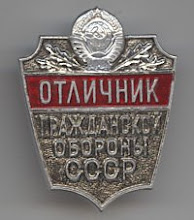As an example, I'm going to present a quote from Walter Lippman's July 1944 book US War Aims. Lippman was arguably a proto-neocon, and he wrote extensively about US foreign policy during the first half of the twentieth century. In the book's chapter on US-Soviet relations, he used an interesting simile to describe how he imagined the postwar strategic balance:
A Russian-American war is, as such, a virtual impossibility. In the West the two countries cannot get at each other except by crossing Europe. They might wage border war where Siberia and Alaska meet. But American could not invade and occupy the Urals by way of Alaska, nor Russians the Mississippi Valley by way of Siberia. No competent soldier would contemplate seriously either project.Ironically, the Trinity test took place 12 months after Lippman's book was published, transforming the strategic balance irrevocably. In his ignorance, Lippman made an excellent case for why a general Soviet-American war was unlikely in a non-nuclear world- it was a military near-impossibility. Without the bomb, the Soviets would have been far more secure in their position on the Eurasian continent. How this might have reshaped the postwar world is something we can never know for certain, but the strategic importance of the bomb is undeniable. By enabling the superpowers to threaten one another directly, it was the most important fact in the postwar strategic balance.
Aerial bombing accross the arctic will no doubt become technically feasible in the near future. But only uncritical speculation can suppose that air forces based on Russian and American soil could in the foreseeable future be capable of deciding a Russian-American conflict. The notion is quite contrary to all technological experience: it assumes that the while offensive power of the bomber will grow without limits, the anti-aircraft defense will not grow accordingly. In the foreseeable future, which is all that statesmen can deal with, a war waged directly between Russian and the United States is nearly as impossible as a battle between an elephant and a whale.

No comments:
Post a Comment